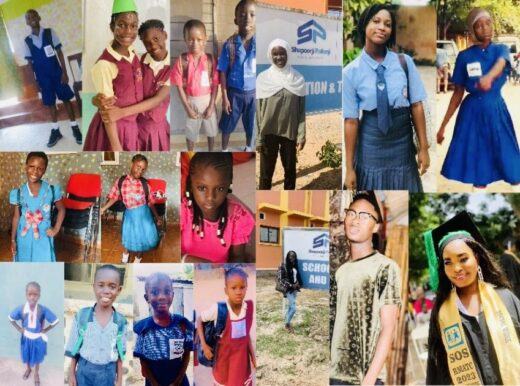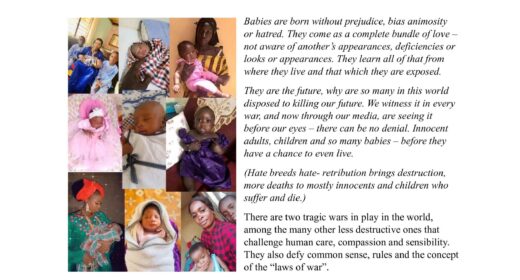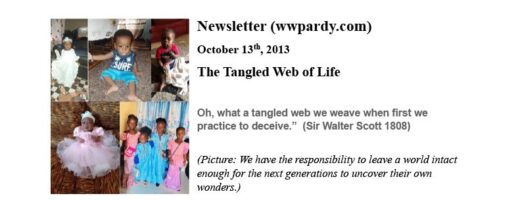Lack of money wealth in the world shouldn’t be a problem with prolific news stories about huge takeover attempts, large individual stockpiles of gold and silver, the vast sums paid to executives for salaries and bonuses and the billions owned by the few. There would appear that there is enough monetary wealth for all.
The question is whose wealth is it? By this I mean not the monetary wealth, but that which is contained in the natural resources of the living world. Without these resources there would be no artificial monetary wealth.
According to news items recent reports from the US and Canada the earnings of the top 1% of earners have risen steadily since the 1980s In the US and other developed countries the figures show the same skewing of wealth distribution. The indication is that the allocation of wealth today resembles very much the pattern of the 1920s prior to the great depression.
One might believe that the current economic recession is a precursor to another major adjustment in world economies. Certainly, if the imbalance between the haves and the have-nots is an indicator, then there should be cause for concern.
The opportunities for those in society, other than the very wealthy, to earn a living are limited, if they are honest and wish to respect the law. The growing use of technology, shifts of industries to lower cost, poorer countries, and curtailment of support for those less advantaged is adding to the economic distress of many.
Perhaps it is time for a shift from the concept of economic growth, which has been the mantra of business and government for the past 50 – 60 years, into one of more balanced wealth distribution. This period has been a period when monetary wealth has again dramatically shifted to those most wealthy. It has, as well, been the most destructive period to the natural world in history.
After the Great Depression and the Second World War, wealth distribution moderated and the gaps between the rich and poor narrowed in developed countries. This phenomenon only lasted for a few decades as the balance, once again, began to shift in the 1980s.
It is time for a dialogue or at least some discussion about who owns the natural wealth of resources. Is it the property of the collective populations the country or region where it exists, or is the property of governments and business to do with what they want? Much of the current discussions in democratic governments would suggest it is the latter. Perhaps consideration should be given to all the people who live in the world; even those distant from the resources.
As importantly, consideration should be given to the means whereby it could be shared more equitably, as older methods apparently are not working.
The discussion could begin here. Newfoundland and Labrador is a have province, yet the polarization of wealth and development is obvious for all to see.
This newfound wealth belongs to all those that reside in the province (even though it is shared with the rest of Canada). It doesn’t just belong to those closest to where if comes ashore, who glean employment from the new industries being established or those fortunate to live in close proximity to these industries. Nor does it just belong to the government and business.
Rural communities have persevered through some pretty dire times in the past in sustaining the province and have a vested interest in this wealth. It appears that the renewable resources, which were the basis for the economy of most of these communities (and the province) have been abandoned for the very finite resource of oil.
Is anyone considering what will happen when it runs dry and there is little else? Perhaps most have bought into the philosophy, that appears prevalent elsewhere, of poor economy, no community. Or, as one person who wrote into the local talk show, about one community in distress suggested that the solution is to send in the bulldozers and demolish the houses and move people elsewhere.
Modern economics was founded by moral philosophers (i.e. Adam Smith). What has happened to this moral foundation? Where has human compassion gone?.
Take the case of the young man in Arizona who lay on the operating table for a liver transplant (a suitable replacement had been found) only to discover that the Governor had suspended legislation supporting transplants to save 4.5 million dollars, his wife was told she needed a 200,000 dollars deposit to continue the operation. This country condemns others for human abuse.
There is much the same lack of care happening in most of the “advanced” countries, even our own as they struggle to balance budgets or win political favour.
In the natural world most species take only what they need, usually share with their own and care for those when they are in difficulty. We seem to have created a culture built on the most negative aspect of human nature that of getting as much as we can and sharing as little as possible; despite the destruction and waste foisted on the natural world and fellow humans.
This appears to have been the human trait that continually has been our undoing since human history began.
We forget that we are just visitors to this beautiful world. If we are good stewards the riches (resources) would last forever: it has for millions of years. If we continue on the path that most appear to have chosen, our visitation will be finite; with nothing left we won’t exist.
Monetary wealth can only be created from things that others value. Real economies can only be created by sharing. Genuine markets are places of fair and honest dealings built on consideration for others.
Money only has value if you can exchange it for something else. Perhaps, too late, the few that appear to own most of the wealth will learn that to have it all, is to have nothing!


